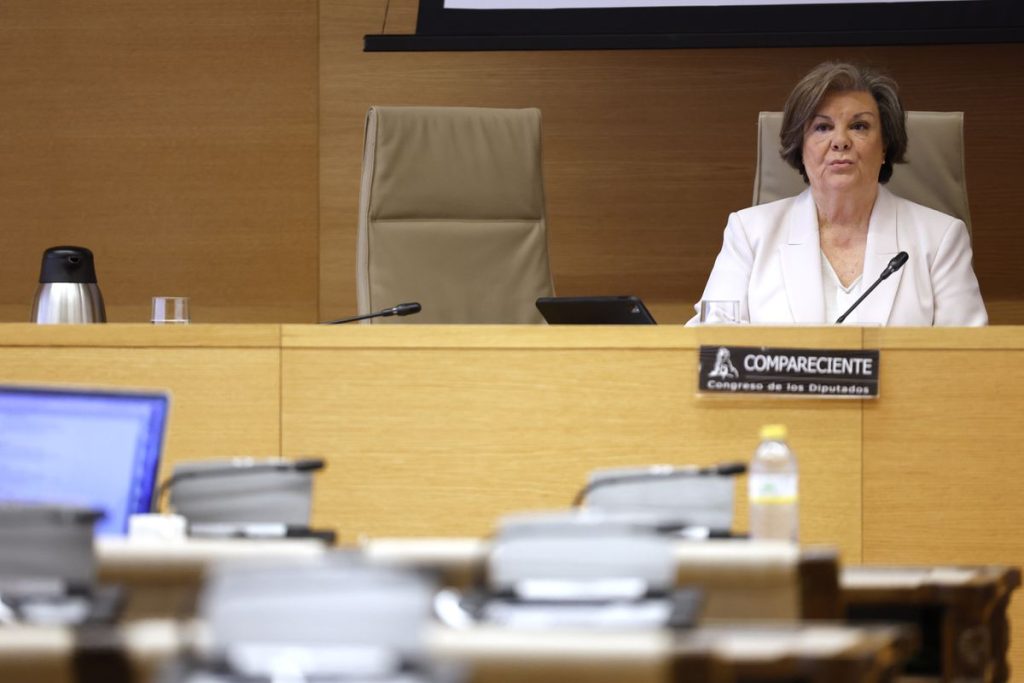The President of the Court of Auditors, Enriqueta Chicano, opened the hearings in the Congress investigation commission on the acquisition of health material during the pandemic by stating that the contracts were done to the best of their ability given the emergency situation. The PP and Vox criticized the court for not being able to detect or prevent corruption, with the Popular Party accusing the oversight agency of “whitewashing irregularities.” The PSOE defended the institution’s prestige, while ERC and Junts compared the lack of action taken against fraudulent mask contracts to the persecution suffered by independence leaders judged by the Court of Auditors for embezzlement. Sumar called for measures to prevent scandals like the alleged illegal commissions in health material contracts from happening again.
The Court of Auditors, the body that oversees the economic management of all public administrations and judges any accounting irregularities committed by them, reviewed the health material contracts made during the pandemic. It concluded that while most did not comply with procurement rules (lack of competitive bids, hand-picking contractors, inflated prices, lack of company solvency and experience), nothing illegal occurred because during the state of alarm, the government suspended procurement regulations to speed up purchases. Enriqueta Chicano tried to defend the court from attacks by the PP spokesman accusing them of “whitewashing irregularities” and the questions raised by Vox about her political affiliations. She highlighted the exceptional nature of the pandemic situation and clarified that the Court of Auditors is not an anti-fraud or anti-corruption body, as its control is post facto, not to uncover crimes, which is up to the Prosecutor’s Office.
In response to Sumar, the President of the Court of Auditors explained that the health emergency created a chaotic market, citing a European Commission report urging quick and clever solutions to protect public health. It is disappointing to see that our administrations have trouble detecting corruption due to deficiencies in their control systems, Rivera noted. Several spokespeople mentioned former Health Minister Salvador Illa, suggesting that some of the contracts processed by his department were irregular. ERC’s spokesperson compared the rigor applied to investigating the Catalan independence movement embezzlement to the supposed apathy towards pandemic contracts, implying a double standard. The question of controls over the Madrid region’s contracts was brought up, with Chicano mentioning that the region has its own oversight body.
The comments made during the hearings reflect the ongoing debate over the handling of health material contracts during the pandemic and the accountability of public administrations in ensuring transparent procurement processes. The accusations of whitewashing and lack of oversight raise concerns about the effectiveness of control mechanisms in preventing corruption. The comparisons between different investigations conducted by the Court of Auditors also highlight perceptions of bias and inconsistency in their approach. Moving forward, the calls for measures to prevent similar scandals from happening again underscore the importance of strengthening accountability and transparency in public procurement to maintain public trust and prevent abuses of power. The hearings serve as a platform for scrutiny and accountability, shedding light on the challenges faced in ensuring good governance and combating corruption in times of crisis.


